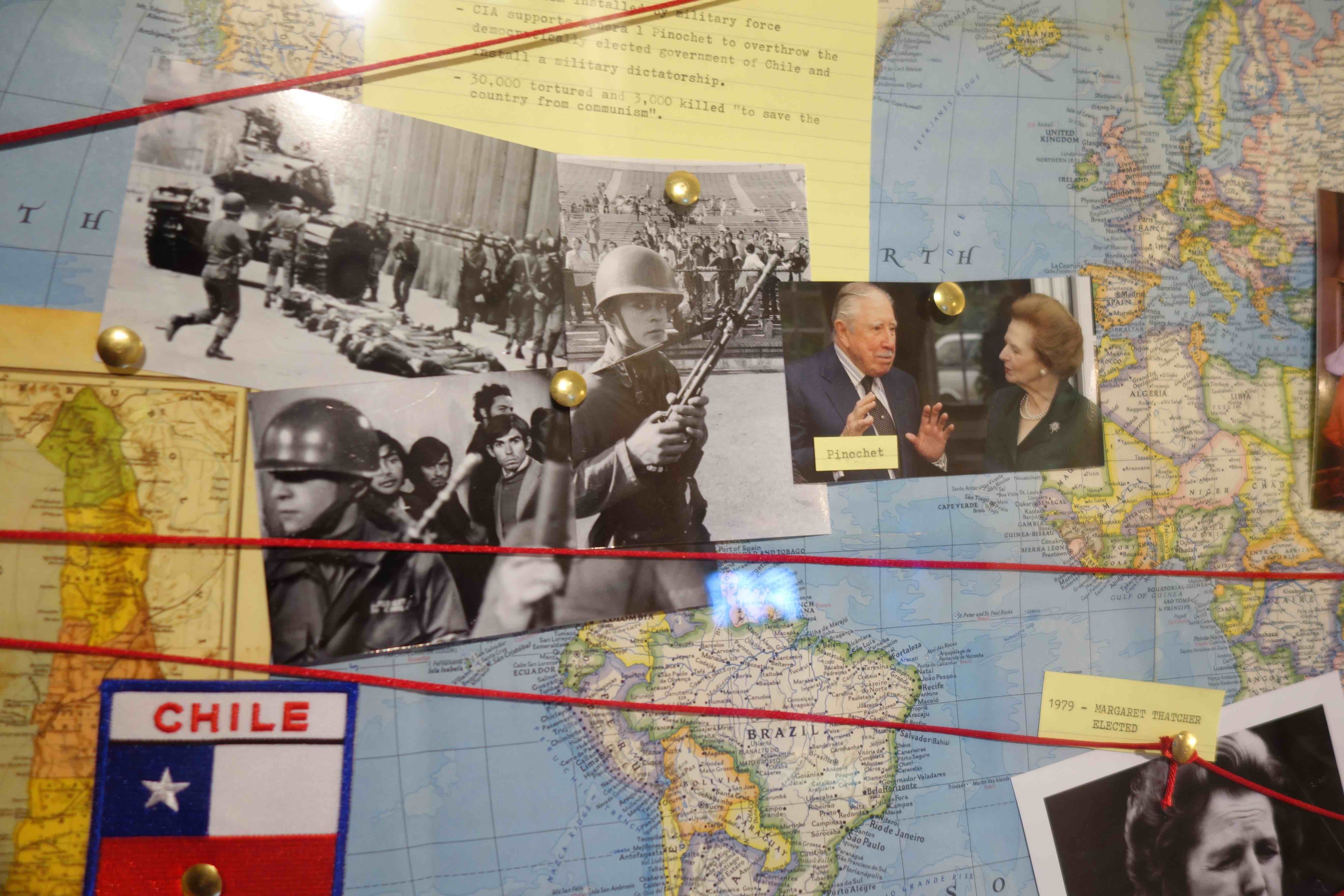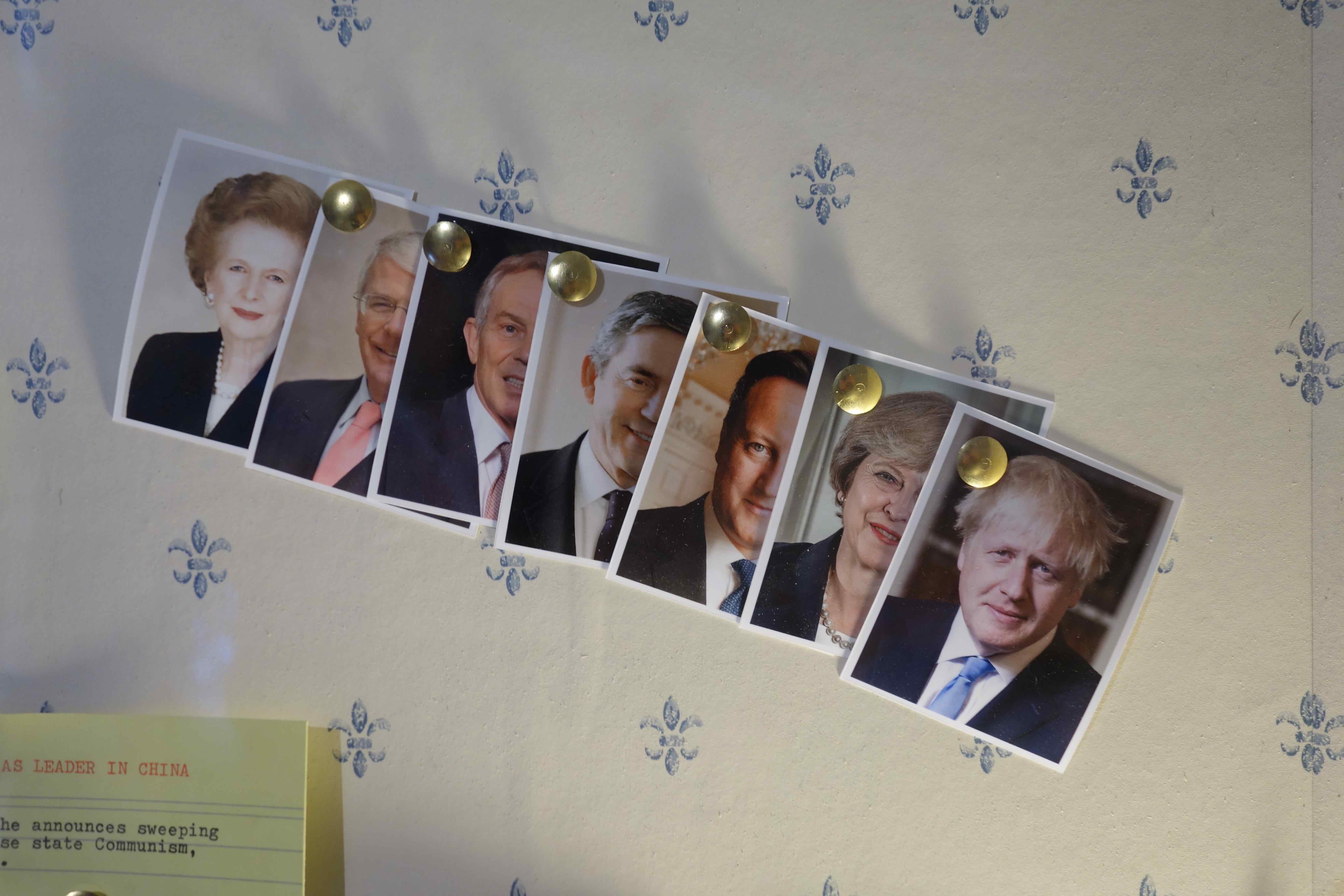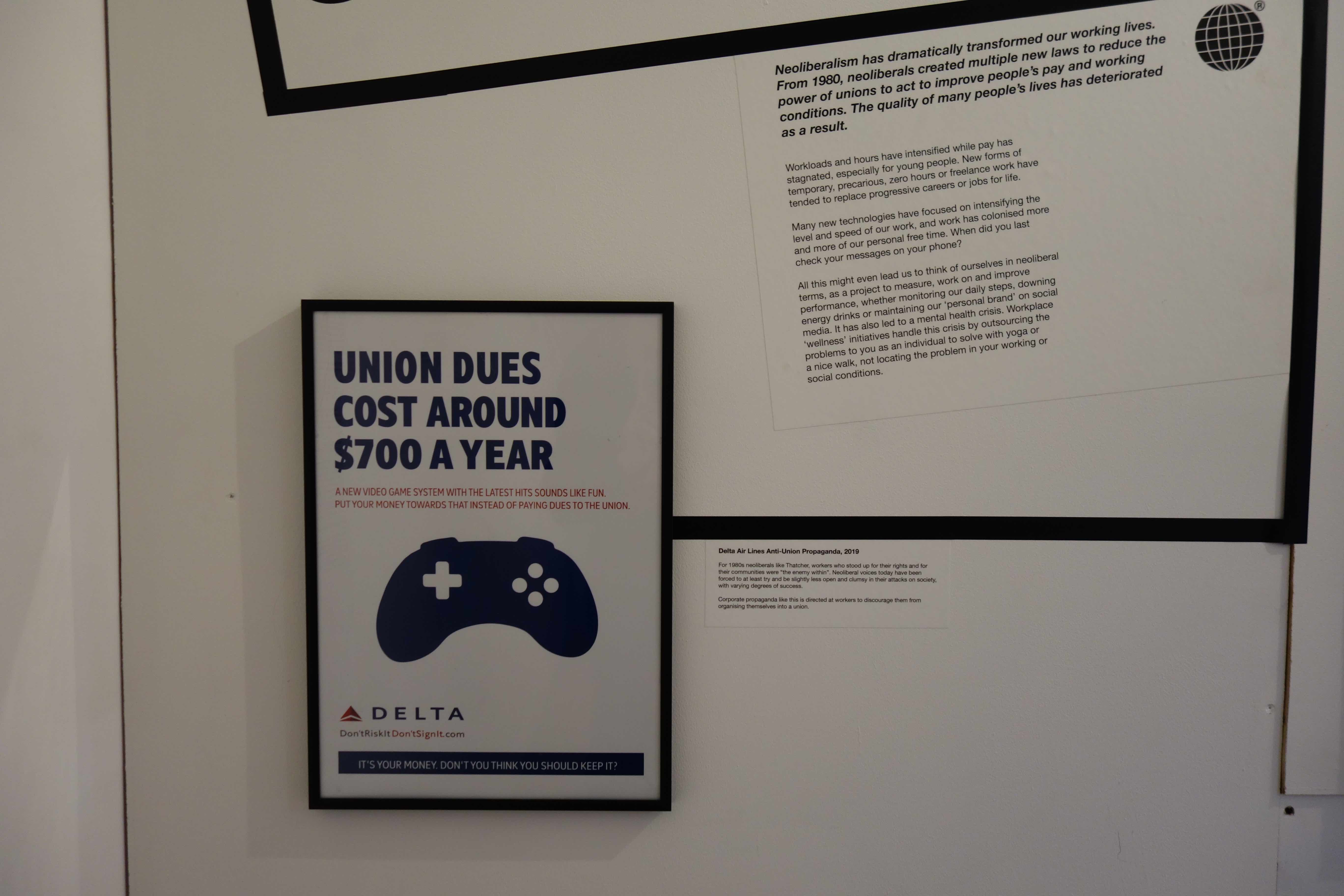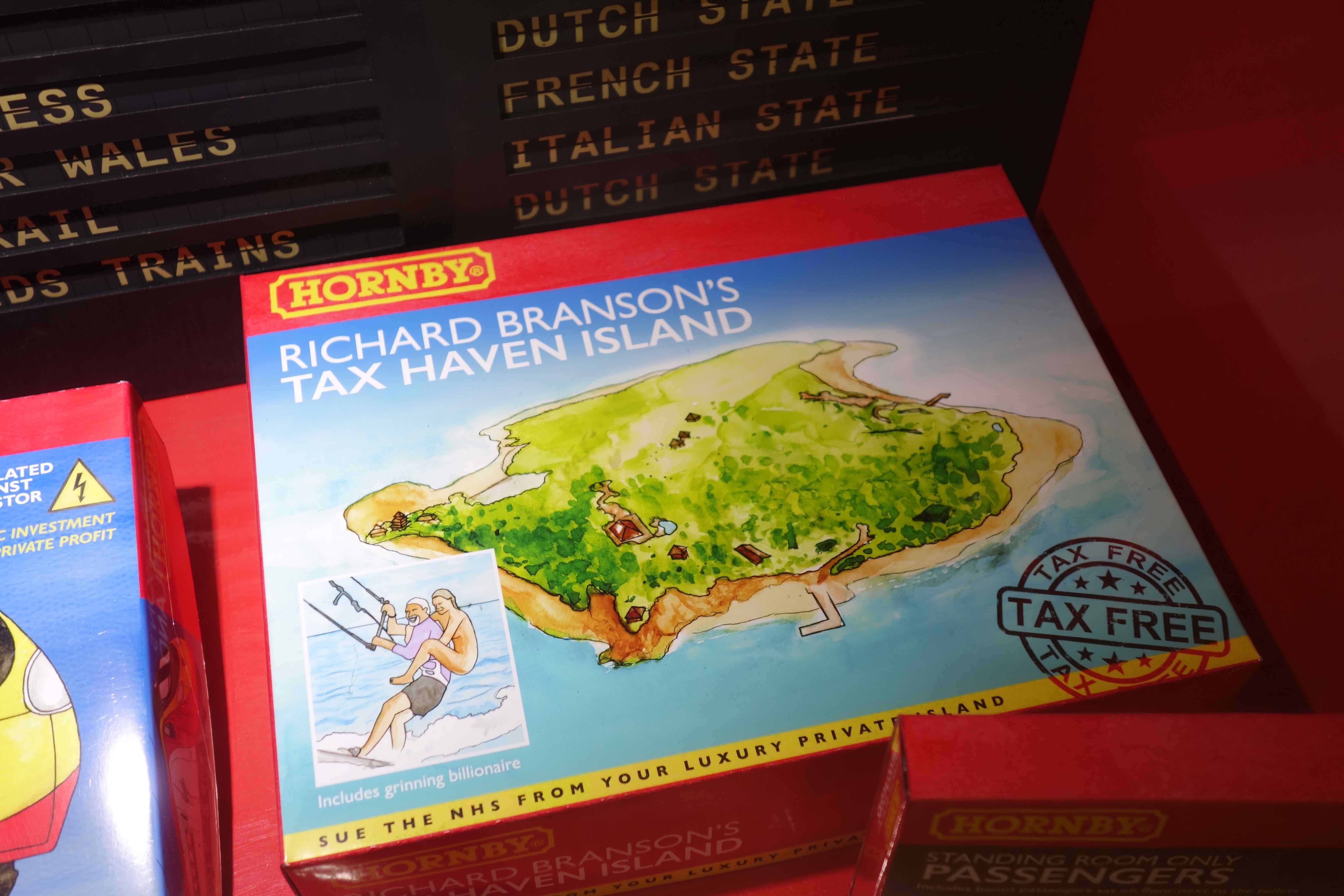Inside London’s new Museum of Neoliberalism
- Text by Tom Usher

Satirical artist Darren Cullen – better known as Spelling Mistakes Cost Lives – wasn’t always so adamantly critical of neoliberalism.
He grew up in Whitkirk, East Leeds, a suburb that he describes as “proper Daily Mail country”. And he’d be one to know, as his first job as a teenager was doing a paper round in the area, delivering various shades of right-wing papers – The Daily Mail, Express, and The Sun – to his local neighbourhood.
“I’d be delivering these papers every day then reading them all and thinking I was getting a really great cross-section of the world, but was actually getting radicalised by them,” Darren tells me, “I almost joined UKIP when I was 16.”
It’s hard to link Cullen’s art with the fact he once considered joining UKIP. Known mostly for his love of ‘subtervising’ – using the imagery of political or corporate advertising for satirical purposes – his work is deeply critical of right-wing ideology, taking on subjects like nationalism, the military, and rampant capitalism.
His shift away from the right began while he was studying art in Glasgow. From there, he read up on global inequality and watched documentaries by Noam Chomsky, which planted seeds in his head that gradually led him to the radical art he produces today.
His most recent project is the Museum of Neoliberalism. A collaboration between Cullen and radical academic Gavin Grindon, it opened at the Leegate shopping centre, Lewisham, in November last year, and is running for as long as they let Cullen keep the premises.


“Me and Gavin first wanted to make a museum of Thatcher, but then we quickly realised we couldn’t talk about Thatcher without mentioning Pinochet, and Chile, the Chicago Boys, and neoliberalism in general.”
“With the museum, we wanted to call out neoliberalism as an economic ideology, but one that creates culture, like things that we consider culturally neoliberal are a side effect of an economic ideology.”
The Museum itself is an insightful and often shocking look into the way the world – and specifically the UK – has operated since Thatcher and Reagan came into power. There are illustrative figurines showing the NHS being dismantled by Private Finance Initiatives; neck-strainingly tall lists of once nationalised institutions that have now been privatised; a UK rail Monopoly board game; and a (genuine) bottle of urine donated by an Amazon factory employee.
“I think what I’m doing fits into more of an outsider artist tradition,” Cullen tells me. “The goal is to do stuff that sustains me in my ability to do agitprop against things that really piss me off, like military recruitment, the oil industry and neoliberalism in general.”


Cullen hopes his art will have the ability to affect real life – even if it’s only incrementally. He felt the effects of his art after his anti-Shell art, which he sold as stickers and badges, were the subject of a cease and desist order from the company, which led to some awkward back and forth email correspondence.
“The anti-Shell stuff I did, which they sent me a cease and desist over, just makes me really glad that somewhere in the evil headquarters of Shell there was a meeting held about my work, and they had to talk about me for five minutes instead of fucking over the world,” Cullen says, laughing, “Just even a sense that you’re pissing off the right people is immensely satisfying.”
In that way, Cullen’s work is almost acting as a karmic rebalance in the world. Just as he was taught to re-evaluate his right-wing outlook, he is now planting those seeds himself with his subtervising, hoping to sow a more critical way of thinking into people unaware of the troubles of neoliberalism.
“I don’t know what my art is doing once it’s out there,” Cullen says, finally. “I think it’s very hard to change people’s minds. But if it could just make someone laugh then you’ve at least got them to agree with you about the absurdity of a situation.”
Museum of Neoliberalism is currently open in Lewisham, London.
Follow Tom Usher on Twitter.
Enjoyed this article? Like Huck on Facebook or follow us on Twitter.
You might like

“Humanity’s big threat is our disconnect from nature”: Craig Richards and Chris Levine in conversation
Lighting up — With Houghton Festival collaborating with artist Chris Levine in its most recent edition, we sat down with the light artist and the festival’s creative director Craig Richards to chat about their new installations, and the role of art and music in tumultuous times.
Written by: Isaac Muk

In London, rollerskating’s revival rumbles with the city’s soundsystem culture
Rink magic — New quad skate events around the capital are being soundtracked by a cocktail of jungle, dancehall, amapiano, UK rap and more, in a uniquely London fusion. Ian McQuaid reports on the hybrid skate-dances, and the growing pains that the scene has faced.
Written by: Ian McQuaid

Throwback portraits of the UK’s first punks
Punks 1978-1980 — While working as a photographer in the army, Wayne “Spike” Large would moonlight as a punk on the weekends. His new photobook revisits the characters that he captured from the genre’s heyday.
Written by: Miss Rosen

Meet Lady Pink, the ‘First Lady’ of graffiti
Miss Subway NYC — As a leading writer and artist in a man’s world, Sandra Fabara has long been a trailblazer for girls in underground art. Now, her new show touches on her legacy, while looking to the future.
Written by: Isaac Muk

Brian Eno announces Palestine fundraiser concert at Wembley Arena
Together for Palestine — It will take place on September 17, with “every penny donated” going to humanitarian relief in Gaza via Choose Love.
Written by: Ella Glossop

Jack Johnson
Letting It All Out — Jack Johnson’s latest record, Sleep Through The Static, is more powerful and thought provoking than his entire back catalogue put together. At its core, two themes stand out: war and the environment. HUCK pays a visit to Jack’s solar-powered Casa Verde, in Los Angeles, to speak about his new album, climate change, politics, family and the beauty of doing things your own way.
Written by: Tim Donnelly

